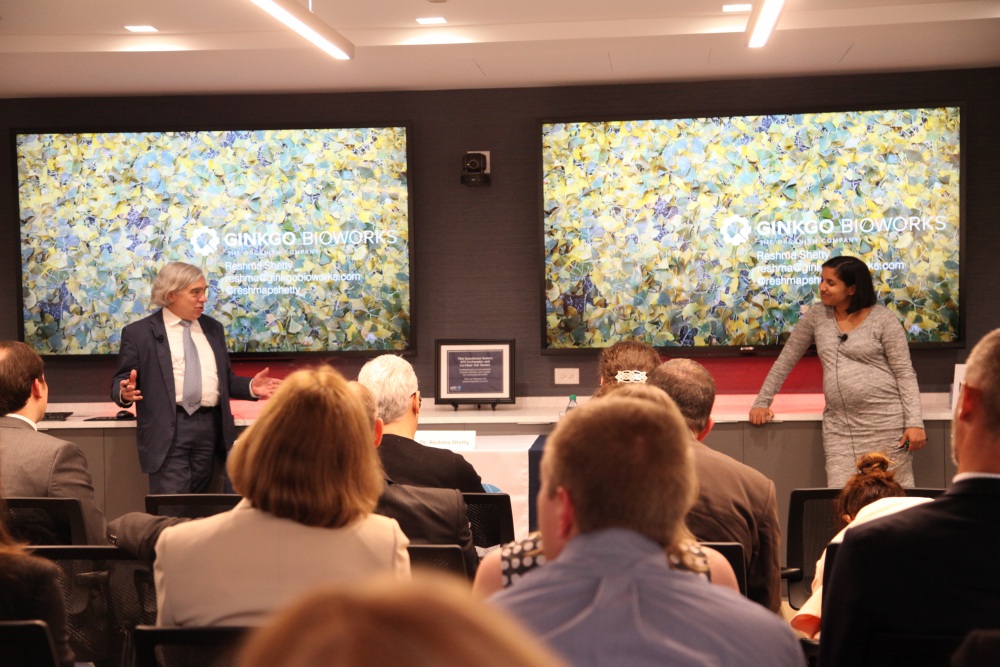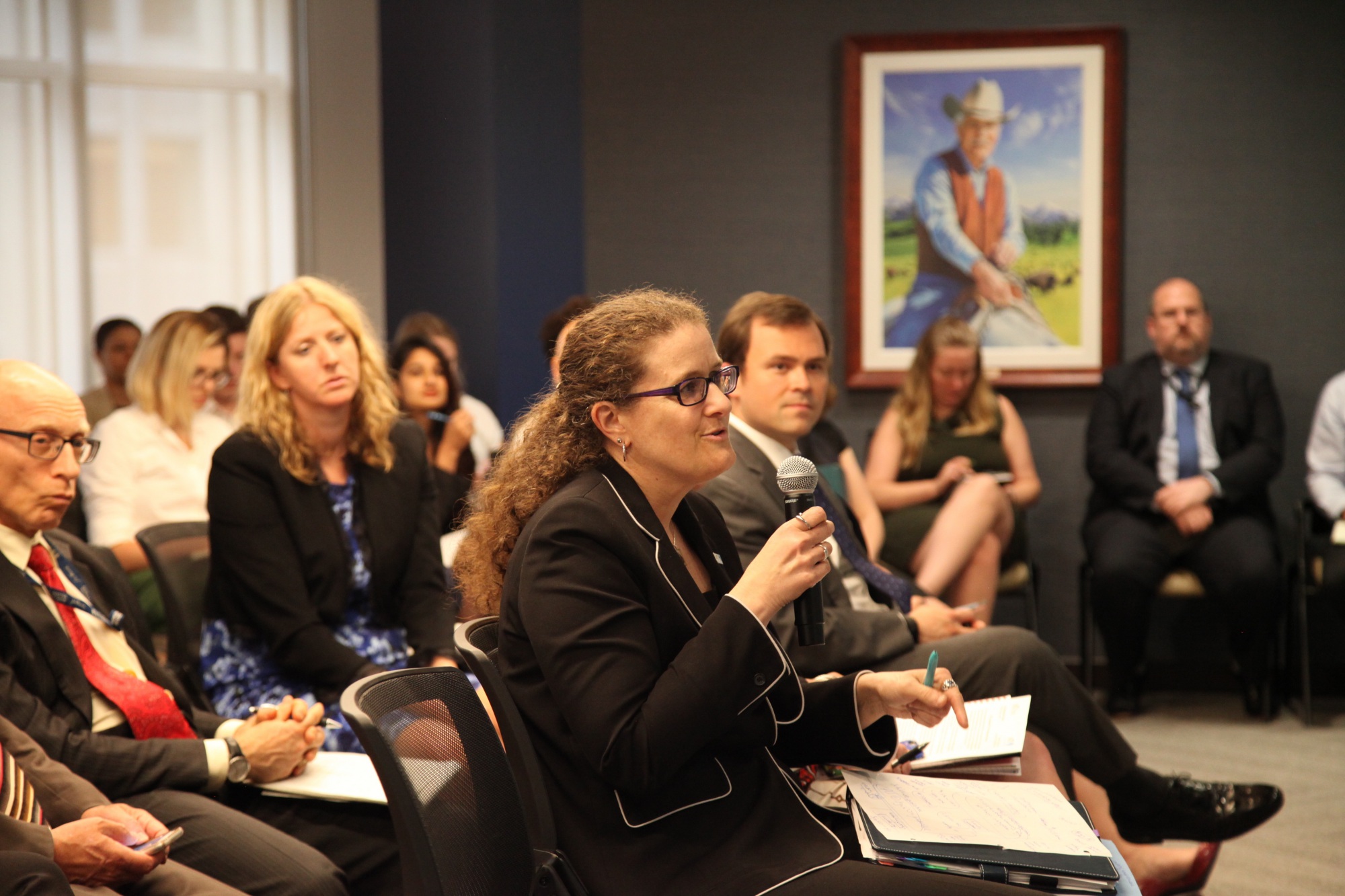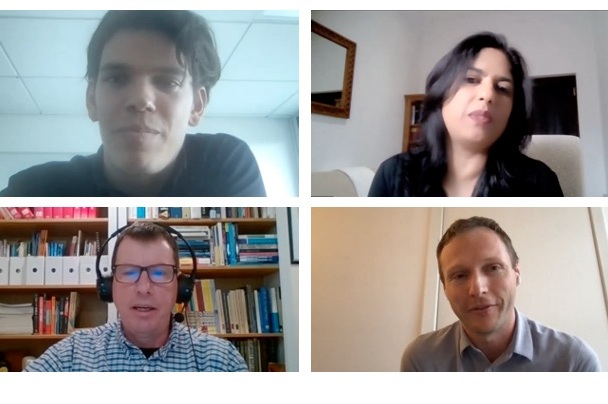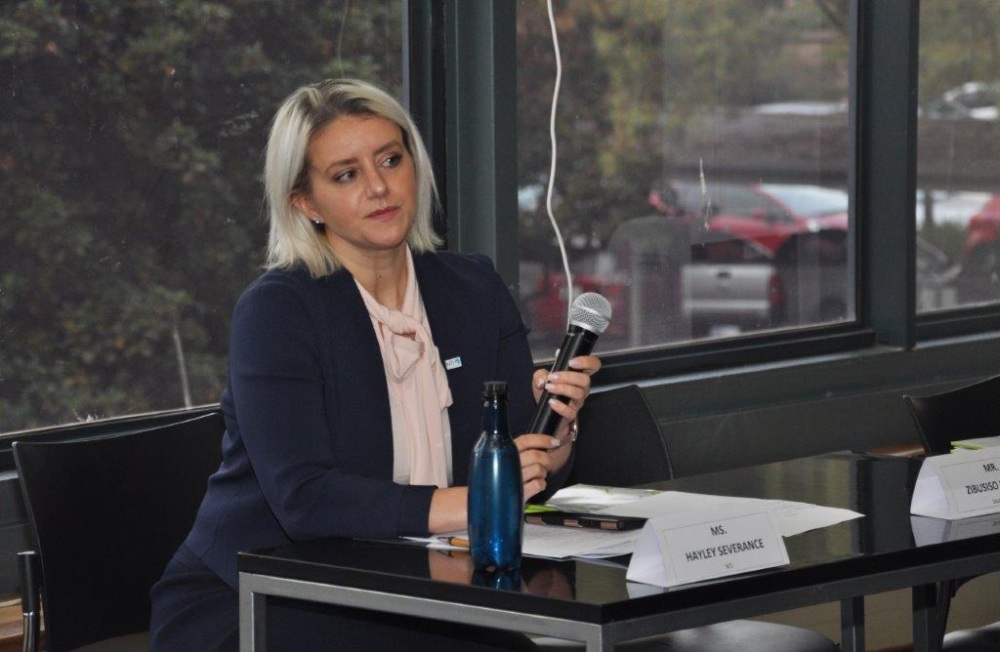
Get to Know NTI: Aparupa Sengupta
Aparupa Sengupta, senior program officer for NTI’s Global Biological Policy and Programs team (NTI | bio), sat down with NTI’s Mary Fulham for the latest in Atomic Pulse’s “Get to Know NTI” series.
Atomic Pulse
This post was written by Katherine Budeski, an intern on the
NTI | bio team. Budeski is a rising senior at Montana State University majoring
in Biochemistry with minors in Hispanic Studies, Global Health, and Political
Science.
In 2007, Nuclear Threat Initiative co-founder and
then-CEO Sam Nunn warned the Pacific Health Summit in Seattle, WA that,
“bioterrorism will be an equal threat to nuclear terrorism in the years ahead.”
At NTI, he added, “we believe that the threat posed by biological agents
challenges our traditional ways of thinking about prevention, deterrence,
nonproliferation and response, and requires that we think anew.”
Today, as the world balances the promise and peril of biotechnology
innovation, responsible stewardship in the life sciences is an imperative. But
are we too late?
Dr. Reshma Shetty, a co-founder of Ginkgo Bioworks,
addressed that question and more at the June 13th launch of NTI | bio,
an NTI program committed to biosecurity and global health security. “We waited
until we were already reliant on computers to focus on cybersecurity issues,”
she said. “Biology is already ubiquitous. We need to work on biosecurity before
biological design becomes ubiquitous.”
During the event, which marked the third in NTI’s new seminar
series conceived by NTI CEO and Co-Chair Ernest Moniz, Dr. Shetty contributed to
an on-going dialogue at NTI to address rapidly evolving technological advances
in the field of synthetic biology and the ways in which NTI, scientists, and
policy makers alike can mitigate the potential for global catastrophic
biological risks. One of the goals of NTI | bio is to partner with the life
sciences community in the development of norms and concrete actions to reduce
biological risks associated with advances in technology. One approach involves incentivizing
“biosecurity-by-design,” which builds in biosecurity from the outset,
simultaneously fostering creative new technical approaches while advancing
biosecurity and biosafety.
Dr. Shetty began with an introduction to the exciting
field of synthetic biology, the cutting edge interdisciplinary field that
brings together engineering, biology, and other fields such as genetics and
computer science to create designer biological systems, like cells, viruses,
and enzymes. She explained that rapid advances in synthetic biology stem from
the confluence of multiple factors, including the dramatically decreasing cost
of engineering organisms and improving technologies that quickly assess their
effectiveness. “As we become more sophisticated at designing biology, the
envelope of feasible threats expands, but so does the envelope of feasible
biological countermeasures,” she said, adding that as the process to design
organisms is expedited, we also need to certify that we have mechanisms
designed to rapidly respond to an outbreak of an engineered pathogen.
Yet in 2018, the
resolution to protect the world from potential global catastrophic biological
risks is still complex, interdisciplinary, and multifarious. Secretary Moniz
stated earlier this year that, “in our interconnected world, biological threats
are among the most dangerous and difficult. NTI is committed to generating new
international approaches to strengthen biosecurity.” Among the approaches, NTI
| bio will facilitate open dialogues with experts such as Dr. Shetty to
identify and proliferate global norms for biosecurity and biosafety. Developing
scientific norms established by researchers has the potential to significantly
reduce the threat posed by dual-use technology by dis-incentivizing
irresponsible or even malicious science. Without established global norms,
researchers on the frontier of biology may be expanding our arsenal to prevent,
detect, and respond to a biological risk while potentially fueling
unconventional and unforeseen threats.
Dr.
Reshma Shetty is a member of the NTI | bio Advisory Group.
Sign up for our newsletter to get the latest on nuclear and biological threats.
Aparupa Sengupta, senior program officer for NTI’s Global Biological Policy and Programs team (NTI | bio), sat down with NTI’s Mary Fulham for the latest in Atomic Pulse’s “Get to Know NTI” series.
Today, leaders preparing for the BWC’s Ninth Review Conference in August are exploring whether the global community can leverage increased attention and political will to strengthen the BWC by building mechanisms that increase transparency and trust with the goal of reducing the risk of global catastrophic biological events. A particular aim is determining whether there are effective and politically viable ways to enforce the treaty.
An epidemiologist focused on preventing catastrophic biological events and building health security capacity around the world, Hayley Anne Severance brought her expertise to NTI’s expanding biosecurity team in 2018.



